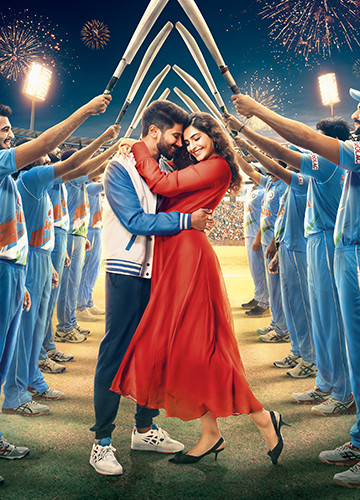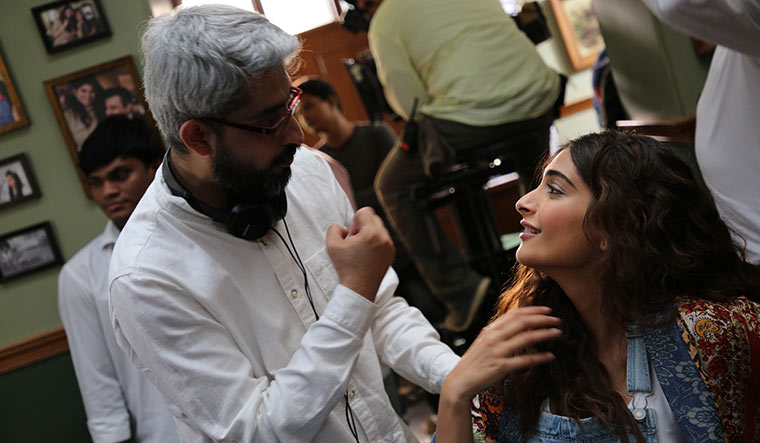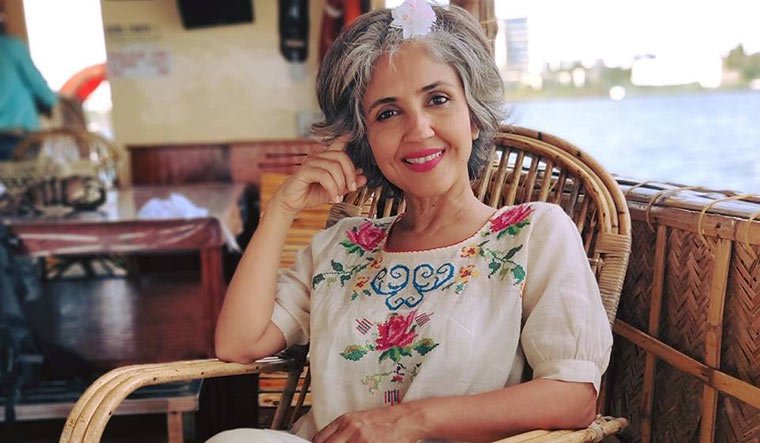The scene is the banquet hall of a hotel in Dhaka. Mid-level advertising executive Zoya Solanki is there to oversee an ad shoot with the Indian cricket team for soft drinks company Zing Cola. The players are a chirpy group, despite their fancy cellphones and sunglasses. One of them, however, is a spoilt reigning diva, who wants his shoes changed from a UK nine to a nine-and-a-half. The player is adamant they be Nikes. As there are no Nike nine-and-a-halfs in the shop below, Zoya does what any self-respecting young advertising professional would do—she buys a pair of local shoes and draws the Nike ‘Swoosh’ on them with a ballpoint pen. It is a truly laugh-out-loud scene, especially as she borrows the pen from the skipper—the simmering hot Nikhil Khoda.
Interestingly, Anuja Chauhan, author of The Zoya Factor, says the incident is taken from her own life. “This big cricketer, who shall remain unnamed, behaved in an absolutely appalling way with me, claiming his shoes did not fit him and getting me to buy him three new pairs, all of which he took home after the shoot, including the ones he claimed ‘did not fit’!” she says. “Well, I got my revenge. Let that be a lesson to celebrities everywhere. Be nice to struggling junior copywriters or we will place you in our first book (and film) and turn you into a monster!”
The Zoya Factor is about a girl born at the exact moment India clinched the cricket World Cup in 1983, and narrowly escaped being named Kapila Devi Solanki. In a strange turn of events, Zoya becomes a lucky charm for the Indian team, as its younger players believe that if she eats breakfast with them before a match, they will win it. Chauhan is not the Mark Twain types with their caustic drollery or the Jane Austen types with their polished wit. Hers is the kind of over-the-top situational humour that is so funny because it is so relatable. It is like she has taken people she knows and caricatured a few of their characteristics. Like Eppa, Zoya’s maid, who is addicted to late-night television and believes a woman has to kill herself if she is “spoilt” by a man. Or become a nun. As a concession, she adds: “They can take badla (revenge) on him first if they want.”
The novel is full of this kind of conversational zing and spot-on observations that would not have been easy to capture on camera. Abhishek Sharma, the film’s director, however, feels the rom-com looks “pretty solid”. “I love jumping genres with every film and it was a delight to work on my first romantic comedy after an intense drama thriller (Parmanu),” he says. “I have done comedies before like Tere Bin Laden, but had never directed romance on screen and thus it was a challenge. However, Anuja’s book was the guiding light and had so much quality content that it really helped me sink my teeth into this beautiful love story.” He calls Chauhan the “mother-ship of the project, who took our script to another level by adding her nuances”. The film is slated to release on September 20.
The biggest challenge, however, would not have been Sharma’s; it would have been Sonam Kapoor’s in playing Zoya. In the book, Zoya is the girl with the chubby cheeks and the frothy hair. Her aim is to be a Truly Spiritually Evolved Person. Unfortunately, every time she sees Nikhil, her mind goes “Yeh toh bada toinnngg hai”, the tagline of a raunchy ad for men’s underpants. She is charming in an awkward, unintentional way. “Yes, you are right,” says Chauhan. “It is not the tall, leggy fashionista Sonam you visualise in the role at all. And I think that is why she wanted to play it. And she has pulled it off really well. You get the whole vibe of this bumbling, vulnerable, earnestly hard-working young girl refusing to be bogged down by what life is throwing at her. And she is marvelously uninhibited in the part.” Kapoor herself is confident she can pull off the role. “I think I do the best in comedy,” she said at the launch of the film’s trailer. “I feel very comfortable and easy.”
And what about Dulquer Salmaan, who plays Nikhil? “I had not heard of him, to be honest,” says Chauhan. “But then my daughter enlightened me, and explained how he was this huge star. All her girlfriends let out squeals of delight at the mention of his name, and after watching OK Kanmani and Bangalore Days, I did a bit of squealing myself. He has really nailed that brown, brooding intensity that defines Nikhil Khoda.”
At times, there is a rambling feel to the book, like Chauhan is aiming to get somewhere without the help of a map. As she herself says, “I had written the book as a form of escapism, to get away from a lot of pretty intense politics in the workplace, so I had just kept writing and writing compulsively. The Zoya Factor is definitely the most over-written of all my books.” Of the scenes in the book that had to be chopped in the movie, one of them is my favourite, where Zoya and Nikhil take a walk down Ajmal Khan Road. It is a scene that is so beautifully described, you can almost hear the chaos in the air—vendors selling toys on carts lit with “cheerily hissing hurricane lamps”, fairy lights twinkling above, Hindi music blaring from speakers strung up on street lamps and grinning kids wooing you with toy cellphones, red heart-shaped balloons and pink sunglasses. And then there is Captain Cute, who buys peanuts and shells them for Zoya.
Chauhan is especially skilled at imbuing the ordinariness of everyday Indian life with a wistful charm. Is this captured in the film? She promises so. “We have replaced that scene with something more than adequate in the film,” she says. “In fact, maybe it is better to write whole new scenes that retain the flavour of the book and not recreate scenes, because then, if you have read the book, it is hard to be wowed by it the same way you were when you read it the first time.”




